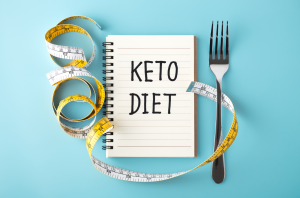Table of Contents
ToggleIntroduction
The ketogenic (keto) diet is having a serious moment all across the world – and for good reason.
This low-carb diet helps people lose weight, reduce blood sugar, improve heart health, and more. Known for providing serious results, it is a force to be reckoned with.
But aside from all of the physical benefits the keto diet brings people, did you know that it also does wonders for mental health, too? As the old saying goes, “You are what you eat”. With the keto diet, a healthy selection of foods can help pave the way for a healthy mind. Keep reading on to find out more.
The ketogenic diet (Keto) is a low-carb, high-fat diet that has been used as an effective treatment for epilepsy in children. It involves restricting carbohydrate intake to about 5% of daily calories and then following a strict ketogenic diet for two to four weeks to induce the metabolic state of ketosis.
The benefits of this approach are numerous: it leads to rapid weight loss (often up to 1 kg per day), improves blood glucose control in people with type 2 diabetes, reduces risk factors associated with cardiovascular disease, and may even have anti-inflammatory effects.
The downsides include increased hunger and cravings, fatigue, and constipation among others. The ketogenic diet may have mental health benefits, including improving mood and cognitive function. It may also reduce inflammation and benefit those with Alzheimer’s or dementia. It should not replace traditional mental health treatments. If experiencing mental health issues, speak with a professional for proper treatment.
Research is still being done on the keto diet

While the research on Keto is still evolving, there are several studies that have shown promise in helping with mental health disorders such as depression or anxiety; however, these findings need further study before being published as scientific evidence. We’ve gathered some key takeaways from recent research studies on Keto diets aimed at improving mental health conditions like depression or anxiety:
Ketogenic diets help improve mood by increasing serotonin levels which are important for regulating moods and feelings of well-being – especially among those who suffer from mood disorders such as anxiety or depression – due to its role in regulating sleep cycles along with other neurotransmitters such as norepinephrine (noradrenaline) which helps regulate emotions including sadness/depression!
What is the keto diet?
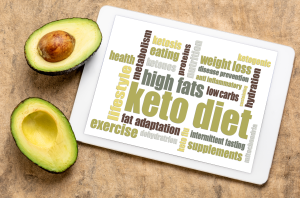
Chances are your social media pages have been flooded by people rambling on about how amazing the keto diet is and how it changed their lives. But what exactly does the diet entail? Is it just another fad that isn’t good for you?
Not at all. Put simply, the ketogenic diet helps people lose weight while improving their health. It involves reducing the number of carbs that are ingested each day and replacing them with healthy fats. Given the drastic reduction in carbohydrates, the body is put into a metabolic state known as ketosis.
When you experience ketosis, your body becomes primed for burning fat for energy. When entering a state of ketosis, the body breaks down its dietary and stored body fat into ketones. Instead of having your body rely on sugar for burning fat, it relies on fat instead.
The keto diet is famous for many reasons. While it may sound intense, it’s not as intimidating as it sounds. You can actually enjoy a wide range of yummy foods when using the keto diet and it helps keep you fuller for longer. But that’s not all – it can be a saving grace for serious mental illness, too.
Keto and low-carb diet
As a 29-year-old following a ketogenic diet, it’s important to pay attention to your carbohydrate intake. Aim to consume no more than 50g of carbs per day to maximize the benefits of this diet, including improved metabolic rate, reduced calorie deficit, and better blood glucose control. It may be helpful to calculate your carb intake at first, but following these recipes can help you sustain the keto diet for an extended period of time.
How does the keto diet impact mental health?
There’s a reason why eating a healthy diet is recommended by doctors, nutritionists, physical therapists, and just about everyone. Not only does it help you look great on the outside, but it helps you feel even better on the inside.
When it comes to mental illness and feeling good on the inside, the keto diet is as good as it gets. Being in a state of ketosis increases the production of a neurotransmitter in the brain known as GABA. Various studies have shown that there is a potential link between anxiety disorders and the depletion of GABA activity in certain individuals. Given the healthy balance of GABA that low-carb diets provide people, it can help reduce stress and anxiety, improve mental focus, and more.
The ketogenic diet provides the brain with a ‘feel good’ effect and is packed with antioxidants to reduce inflammation. This can potentially benefit numerous mental health conditions such as:
- Dementia
- Schizophrenia
- Bipolar disorder
- Depression
You are what you eat. And by eating the keto diet, you could be doing your mental health a huge favor.
Feeling the effects of ketosis can make me feel a lot more energetic and happy.
This is a huge factor in mental health as well as physical health. I personally have found that being in ketosis and feeling the effects of ketosis can make me feel a lot more energetic and happy.
Low-carb diets have been shown to help with many different types of mental health problems, including depression and anxiety. Some studies have even shown that it may be able to reduce the symptoms of bipolar disorder by up to 50%. This is because when we experience low blood sugar levels, our brain releases certain chemicals called neurotransmitters which help us regulate our moods or feelings like sadness or anger. These same neurotransmitters are also what help keep us awake at night!
Makes you feel better physically and mentally.

Depression and anxiety are very common these days, especially among young people. Keto can help with these things by giving you more energy and making you feel better physically and mentally.
Ketogenic diets help with hunger because it makes your body burn fat for fuel instead of sugar, which is what most people eat on a regular basis. If you’re not eating enough food in general, then your body will start craving more food as a way to get the nutrients it needs to survive.
Keto also improves self-esteem because it lets people see their bodies changing into healthier versions of themselves over time; they may even start losing weight while they’re still eating normally! This can lead to higher confidence levels overall so that no one feels bad about themselves anymore when they look at themselves in the mirror (or worse yet—someone else does).
How Keto Benefits Mental Health
The ketogenic diet has been proven to have many benefits for the body, but what about its effects on mental health?
The ketogenic diet can help improve your mental health in several ways. Here are some of the most significant ones:
- Increase in mental clarity
- Reduction in anxiety and depression
- Increase in energy levels and stamina
- Improved memory and concentration
The ketogenic diet can increase the levels of GABA in your brain.
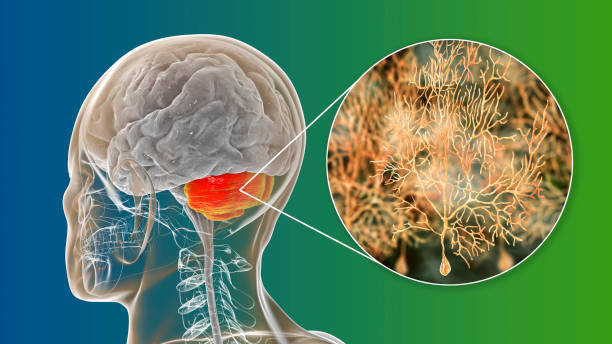
The brain contains GABA, which is an amino acid. It acts as a neurotransmitter, inhibiting nerve impulses and reducing stress and anxiety. It also helps to produce other chemicals such as glutamate, which are essential for proper brain function.
Low-carb diets increase the amount of GABA in your body by providing you with more calories than you burn off through exercise (or even just breathing). This means that when you eat fewer carbs on keto, your body can create more of its own inhibitory neurotransmitters like GABA so they can work better at calming down your nerves before they send signals throughout all parts of your body—including those related to mental health!
It consists of 75% fat, 20% protein, and 5% carbohydrates
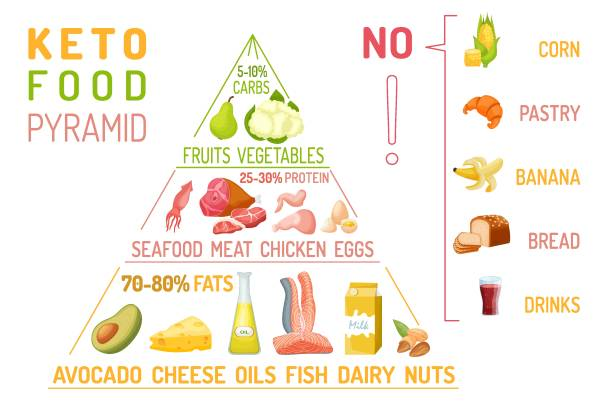
The ketogenic diet is a low-carb, high-fat, and moderate-protein diet. It consists of 75% fat, 20% protein, and 5% carbohydrates.
The best way to understand how the keto diet works are by looking at how it relates to other popular diets like Atkins or South Beach.
It helps the body to create biochemical reactions that are helpful for treating epilepsy.

The ketogenic diet is a high-fat, low-carbohydrate regimen that has been used successfully by many people to treat epilepsy. It’s also been used to help manage other neurological disorders like Parkinson’s disease, Huntington’s disease, and Alzheimer’s disease.
The ketogenic diet works by changing the way your body uses energy by forcing it into fat cells instead of carbohydrates. This causes an increase in fat-burning which leads to weight loss and improved mental clarity for those on this type of eating plan.
It has been used for many years as a natural remedy for epilepsy.
The ketogenic diet was invented in the 1920s by Dr. Royal Lee, who was inspired by the Atkins diet. The original purpose of this low-carb plan was to treat epilepsy, but it has since been used to treat a wide variety of serious mental illnesses.
The ketogenic diet is also known as “keto” or “ketosis” and involves drastically reducing your carbohydrate intake from food sources such as pasta and bread; replacing them with vegetables, meat, and fish; getting lots of healthy fats from avocados/nuts, etc., drinking coconut water every day (it helps you stay hydrated)
It is also known as the keto diet or keto meal plan.

People have shown that a keto diet, which is a low-carb, high-fat diet, helps them lose weight. It’s also known as the ketogenic diet or Keto Meal Plan.
A typical day of eating on this type of plan would include:
- Three cups of coffee (unsweetened)
- Two eggs cooked in butter and served with bacon or sausage links
- One slice of bread toast with butter
This type of diet was developed initially to treat children suffering from severe seizures due to epilepsy.
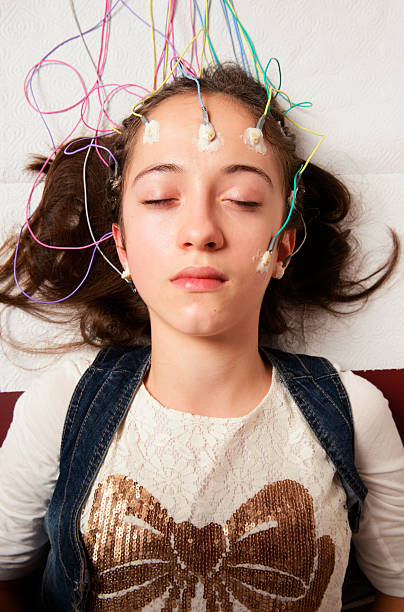
The ketogenic diet, also known as the keto diet or keto meal plan, is a low-carbohydrate, moderate protein, and high-fat diet. It was developed by doctors in the 1920s to treat children suffering from severe seizures due to epilepsy.
The original premise behind keto was it mimics what happens when your body uses fat for energy rather than glucose (sugar). When you consume carbohydrates – sugar and starch – they will break down into glucose molecules by your body’s cells—also called glycogenolysis. Your liver will convert those molecules into fatty acids which will be stored in adipose tissue (fat). This process is called lipolysis!
A keto diet may reduce symptoms of depression, autism, and ADHD.
The ketogenic diet can also help with other mental health disorders such as bipolar disorder or schizophrenia.
We will need to do more research to prove the effectiveness of this type of diet on mental health disorders.
It is essential to be aware of the side effects that you may experience while on a keto diet plan or keto meal plan.

This will help understand how to counteract them so you can achieve optimal mental and physical health.
Clinical trials have proven that the ketogenic diet is an effective treatment for epilepsy, obesity, brain disease, and diabetes.
It also helps with depression, anxiety, ADHD, Parkinson’s disease, and more!
Keto can help with many disorders including seizure-related issues such as epilepsy or other neurological disorders like Alzheimer’s disease or multiple sclerosis (MS).
The main benefit of following a keto meal plan and sticking with it is weight loss. You are more likely to reach your ideal physical state and maintain it for longer than with other diets. They may help you lose weight only to end up putting it back on because the diets were unsustainable long-term.
The ketogenic diet has many benefits, including:
- A healthy way of eating. Eliminating foods high in carbs, sugar, and highly processed means your body doesn’t have to work as hard to digest them. This can better mental health because we’re not consuming foods that require a lot of energy just to digest them. This can often result in low blood sugar levels.
Zero cravings while on keto.

Keto is amazing for this since it helps with hunger! I’ve found that I rarely get cravings while on keto and if I do they’re usually for something healthy.
Keto helps with weight loss because it changes your body’s metabolism. You burn more fat while eating less food. This means that you’ll lose weight without having to eat a lot less or exercise excessively. You’ll also feel better about yourself, which makes all the difference in feeling confident about how you look and feel as well as living a better lifestyle overall!
I also wrote this article about how to meal prep for keto that you may find helpful.
You’ll feel better overall which can help boost self-esteem.

Plus, there’s nothing like looking in the mirror after a few months of keto and realizing how far you’ve come! Keto can help you achieve a healthy body image, which can be difficult to do when you’re on a diet.
Many people who go on low-carb diets feel better about their bodies than they did before they started the diet. In fact, some people even think that they look better! That feeling doesn’t always last long because most people put weight back on after they start eating again. But while your body may not have changed much physically during ketosis—it will still change psychologically as well!
Best tool for tracking macronutrients
To make sure you’re getting the most out of your ketogenic diet, it’s important to track your progress and make sure you’re hitting your daily macronutrient goals. One great tool for this is Cronometer, a comprehensive nutrition tracking app that allows you to input all of the foods you’re eating and see exactly how many grams of carbs, protein, and fat you’re consuming. With Cronometer, you’ll be able to fine-tune your diet and get the most out of your ketogenic journey. Plus, with its easy-to-use interface and extensive food database, it’s a breeze to use. Try it out for yourself and see the difference it can make in your mental and physical health.
How else does the keto diet affect mental well-being?
By choosing the keto diet, you reduce inflammation in the body which in turn decreases oxidative stress and decreases blood sugar. This can result in large improvements for people suffering from mental illness. A study conducted by a University of Toulouse psychiatrist Dr. Albert Danan found the keto diet was not only safe. But also associated with substantial improvements in mental and physical health. Mainly hospitalized patients suffering from depression.

Conclusion.
More and more studies are confirming what so many people already know. The food you eat affects your mental well-being. So why not choose to eat keto-friendly foods? They will have nutrients but help you feel great too! If you want some free keto recipes, click here and ill send you some of the easiest keto recipes I make!
Not everyone will experience the same benefits from following a keto meal plan or sticking with it. Some people may experience side effects such as headaches, brain fog, and fatigue. These are all common symptoms of the keto diet and should not deter anyone from trying it out! Remember that you don’t have to do this diet forever. Just until you feel like your body is in a stable place again.


